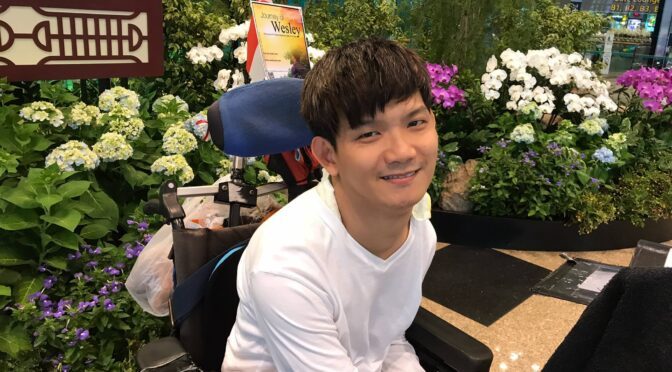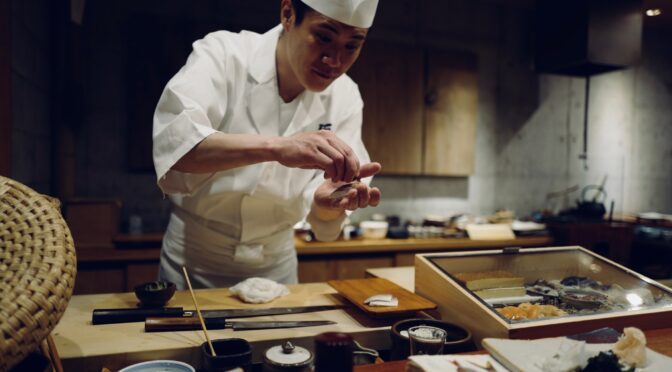Ikigai combines four important elements:
1) What you are good at
2) What you love
3) What the world needs
4) What you can charge for
The pursuit of ikigai seems easy at first. I may think that I am good at singing (some call it a delusion of grandeur), but I will most likely not be paid even in garlands for my stentorian voice, and have to count myself lucky if I am not booed offstage; an album full of my songs is certainly not what the world needs.
Consider the bottom of the Venn diagram: One can be very successful in his career but there is the familiar work rut, that feeling of being trapped in a rat race. On the other hand, there are artists who love what they do, but struggle to pay the bills. Even I, the freelance writer who has turned his passion into a profession, is (somewhat) good at what he does and enjoys a work-life balance, feel stuck because my commercial projects do not make the world a better place, and do not excite me creatively.
I spent most of my twenties chasing deadlines. I actually forgot that I developed an interest in writing at the age of sixteen because I loved writing stories and coming up with cliffhangers and characters. I didn’t become a writer to write marketing copy and peddle home appliances or the next big thing in technology that would anchor a plot for a Black Mirror episode; it was and still is a means of survival, but not my ikigai. This magazine, especially the Inspire series, is my ikigai. My short stories and novel (still in the works) are my ikigai. Besides churning out the content, I would have to work hard to make them a profitable channel.
What is your ikigai? What are the things you do during the wee hours, working and reworking on your artistry, learning and relearning the skills? How can you make money off of it? With the proliferation of platforms such as Airbnb Experiences, you could share your skills with others. Start there. You live your passion, share, and make a side income from it. In this Medium article, Thomas Oppong, Founder of Alltopstartups.com, rightly quoted Howard W Thurman: “Don’t ask what the world needs. Ask what makes you come alive, and go do it. Because what the world needs is people who have come alive.” Your ikigai does not necessarily have to be something that revolutionises the world; it could be gardening or cooking a homespun meal, just something that may inspire others to become a better version of themselves.
In the book “Ikigai: The Japanese Secret to a Long and Happy Life”, authors Héctor García and Francesc Miralles studied the way of life of Japanese residents living in Ogimi, Okinawa, which also goes by the name of Village of Longevity. The rural town with a population of three thousand has remarkable life expectancy, and is home to many centenarians. Here in Okinawa is where ikigai originated, and it has a more specific meaning: reason to get up in the morning. By knowing and finding your ikigai, you can reap the benefits of satisfaction, happiness and meaning.
The authors distilled their lessons into ten commandments of ikigai:
Stay active; don’t retire
When we reach a certain age and slip into a sedentary life, we become at risk of developing Alzheimer’s disease and other illnesses. It is important to continue doing what we love or passing our skills to the next generation and help shape the world.
Take it slow
Stop and smell the roses. More often than not, we careen through life, rushing deadlines and whatnot, and for what? Learn to slow down.
Eat until you are eighty per cent full
Don’t stuff yourself with food. Eat just a little less of what your hunger demands.
Build a network of good friends
Human beings need companionship, and in times of adversity, we need our pillars of strength. Surrounding yourself with people you can trust, laugh with and have fun with is the key to living a meaningful life.
Exercise and take care of your body
It is a scientific fact that exercising releases endorphins, the brain’s happy chemicals. Also, our bodies require daily maintenance so that they can remain healthy, go longer and farther.
Smile
A cheerful disposition makes life more relaxing; a smile is also the precursor to new friendships. Know how lucky you are to be living in the present.
Reconnect with nature
Nature has healing powers for our souls. If you are living in the city and feel the need to recharge, lose yourself in nature.
Be thankful
Spend a moment every day and just be thankful — for your elders, nature, friends and family, and anything that brings you joy.
Live in the present
Stop living with regrets or being afraid of the future. Carpe diem; today is all you have. Make today a fond memory.
Follow your ikigai
What is your passion? Or talent? Discover it, and never stop following your ikigai.



